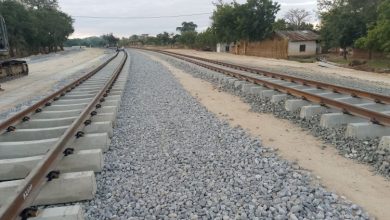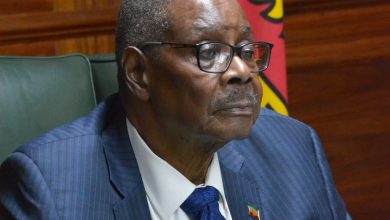Critics assess parties’ power play in Parliament
As Malawi braces for a hung Parliament in which no political party has overall majority, analysts say new power plays could shift loyalties across benches while politics of patronage may undermine strong checks and balances on the Executive.
“As long as the ruling party’s agenda promotes collective welfare, parliamentary configuration is unlikely to be a barrier,” said Ernest Thindwa, one of the political analysts The Nation talked to yesterday.
Based on final results of the September 16 2025 General Election parliamentary race, the incoming Democratic Progressive Party (DPP) administration has secured 34 percent of the 224 constituencies Malawi Electoral Commission (MEC) certified on Tuesday.

That technically leaves the House under the combined control of opposition political parties and a bloc of independent parliamentarians despite President-elect Peter Mutharika’s 56.8 percent sweep of the total presidential vote and the strong governing mandate that comes with such political capital.
According to MEC, DPP secured 77 seats—35 slots shy of a simple majority needed to pass legislation not bordering on constitutional changes, which requires two thirds majority.
The independent bloc has 71 legislators followed by MCP with 53. The other parties shared the remaining seats with UTM Party getting eight, United Democratic Front (UDF) four seats, People’s Party (PP) and Alliance for Democracy (Aford) three each and Freedom Party, National Democratic Party and People’s Development Party one apiece.
Despite topping the polls, DPP failed to attain 115 seats needed for a simple majority in the 229-member House, suggesting that the incoming Peter Mutharika administration may have to depend on alliances to advance its legislative agenda with the independents poised as kingmakers.
Since 1994, there has been an increase in independent members of Parliament (MPs) with four in 1999, 40 in 2004, 32 in 2009, 52 in 2014 and 55 in 2019 and 71 this cycle.
The scenario will not be the first in the country’s parliamentary history as in the 2004-2009 Parliament cohort, President Bingu wa Mutharika’s DPP faced fierce resistance from the opposition, which used Section 65 of the Constitution to push for the expulsion of dozens of members of Parliament (MPs) who had defected to DPP.
Bingu had in February 2005 ditched UDF, the party which sponsored his presidential ticket in 2004, to form DPP.
Reacting to the outcome of this year’s parliamentary race, political scientist Professor Nandini Patel said DPP’s failure to secure a majority speaks volumes about the nature of the 2025 General Election and the party’s internal weaknesses.
“These elections were highly presidential in focus. The real competition was at that level, but the DPP went into the polls weakened by poorly managed primaries and a convention process that excluded many aspirants,” she said.
Patel argued that DPP’s democratic deficits created space for disgruntled members to vie for parliamentary seats as independents, a trend dating back to 2004.
She recalled that since the early 2000s, Malawi has shifted from a relatively stable three-party system to a fragmented arena where independents have steadily gained ground.
“Apart from 2009 when Bingu wa Mutharika’s DPP swept both the presidency and Parliament, every other election since 2004 has seen independents emerging in large numbers,” said Patel.
On his part, Thindwa observed that hung parliaments have been recurring since the return to multiparty democracy in 1994.
“The pattern is likely to continue because Malawi has many parties without clear policy differentiation to guide voters,” he said.
Thindwa cited flawed primaries, weak organisation and indiscipline as factors contributing to the surge in independents.
He also warned that while a hung parliament could, in theory, check Executive overreach, patronage politics often undermines this potential.
“Independent candidates frequently align with the ruling party, seeking access to resources. This can make it easier for government to pass even controversial legislation,” he said.
Thindwa played down fears of a gridlock, stating that parties generally converge on populist policies rather than ideological differences.
On his part, Centre for Multiparty Democracy executive director Boniface Chibwana said the 2025 parliamentary election results reflect a shift in voters’ expectations and accountability.
He said: “Malawians are not only sending a message about party performance, but also about individual parliamentarians if we look at the turnover in the National Assembly.
“Voting is moving away from regional or party loyalty, with personal performance now carrying more weight than political alignment.”
Chibwana has since urged the civil society to remain vigilant to put Parliament and the Executive in check.
In a separate interview, Centre for Human Rights and Rehabilitation executive director Michael Kaiyatsa shared the observation that the rise of independents is a rejection of blind party loyalty.
“The electorate is showing discontent with traditional party politics. Independent MPs suggest voters now prioritise credibility and performance over party affiliation. Legitimacy must be earned, not assumed,” he said.
Kaiyatsa cautioned against equating parliamentary numbers with governance paralysis.
Mwanza Central MP-elect Felix Njawala, who speaks for the UTM Paty, said smaller parties must not be reduced to bargaining chips.
He said: “We do not see ourselves as ‘kingmakers’ chasing political deals for their own sake. Our first duty is to the people who elected us. Where we support or oppose legislation, it will be guided by whether the outcome improves lives, strengthens accountability, and advances national development.”
Njawala said UTM remains open to dialogue, but only on principled terms.
“At this point, we lean towards cooperation around issues, not blanket alliances. Any arrangement must respect our party identity and safeguard the legacy of the late Dr. Saulos Klaus Chilima,” he said.
On parliamentary dynamics, Patel argued that DPP will have to contend with both a strengthened opposition and a fragmented House.
The casualty list from the last cohort of Parliament includes former first deputy Speaker Madalitso Kazombo, Cabinet ministers Khumbize Kandodo Chiponda, Jean Sendeza, Jacob Hara, Ezekiel Ching’oma, Ken Zikhale Ng’oma, Owen Chomanika and Abida Mia. There were also heavyweights such as Bright Msaka, Ken Kandodo, Lobin Lowe, Yeremiah Chihana, Kamlepo Kalua, former Budget and Finance Committee chairperson Gladys Ganda and long-time Natural Resources committee chair Welani Chilenga, among others.





